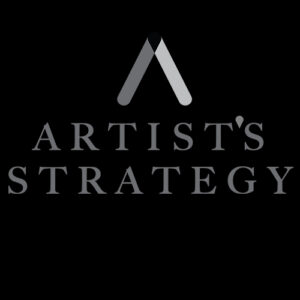
As witnessed as part of Netflix’s new documentary “Generation Wealth”, we are a culture of MORE. We want more money, opportunities, better bodies, etc. And it’s not even really a choice as to whether or not you can want it anymore. It’s built into our beings. While we can manage our feelings and senses of selves within our greedy society, we are wired to accumulate in order to survive. Subsequently, we are forever mired down with work on the hunt for more and more.
We always seem to have a never ending workload that could keep us going for weeks or months before we’re ever able to catch up; more content to create, money to find or people to connect with. I hear about it all and how hard it is to juggle on a week to week basis but there is ultimately a big difference in having a huge workload and effectively working.
What allows for a clear separation? A plan. A plan with clear building blocks so you not only understand how your massive workload is coming together and to what end but also so you can prioritize what’s necessary and what’s not. To underline that last point, there’s a strong probability that the bulk of your day to day work isn’t actually leading you to where you want to go. Prioritization based on your sense of your workload vs. what’s really working could actually leave you some moments of stillness…and wouldn’t that be nice?
You can have a lot of work but if you’re tackling it effectively, it won’t feel like such a burden. In fact, it should be lifting you up and allowing you to build on your successes just like a good workout or an exhausting but fulfilling artistic venture would. When it’s right, it’s right. And you know it.
“Ok! But what if there’s truly just a lot of work and it’s hard to keep up with?”
Well, as always, if you are unhappy or not meeting the goals you’ve set for yourself, cut back. Very simple. Just because you set out lofty goals at the start doesn’t mean they can’t adapt based on what your circumstance is in this moment because we know that if you are just carrying around a constant workload that isn’t actually working, you’re probably going to stay fairly stagnant or run yourself ragged.
“How do you know if it’s just a workload vs. really working?”
Again…a plan. Your plan helps manage your expectations and demystifies the reason for all that output. If your work has purpose, you’re much less likely to question the effort.
You are not allowed to rely on outside forces to dictate your future and while there will always be surprises (that’s how life works), if you are in tune with your work, you can roll with the punches.
If you are currently flying solo and plan free, simply look at some of your habitual smaller efforts within your work and try to identify to what end their purpose serves. That can be a simple, helpful step in identifying a workload vs. what’s really necessary and ultimately working.
Also by Artist’s Strategy:
Artists at Work: How To Find Time For Creativity
Grasping for Social Media Content?


Artist's Strategy offers artists the opportunity to strategize and create tactical next steps towards a successful, fulfilling career. Based on tested business principles, Artist's Strategy helps you design a tangible path towards a sustainable future. Incorporating and using the basic tenets of a healthy business, we will help you set a one, three or five-year-plan that will work for you and keep you on track to seeing real results. With Artist's Strategy, you will work alongside founder Joshua Morgan to identify the strengths and opportunities of your business and learn more about how to stabilize and grow. How long and how frequently you work with Artist's Strategy depends on your individual needs and resources. Contact us to discuss a plan that could work for you.
Read Full Profile© 2021 TheatreArtLife. All rights reserved.

Thank you so much for reading, but you have now reached your free article limit for this month.
Our contributors are currently writing more articles for you to enjoy.
To keep reading, all you have to do is become a subscriber and then you can read unlimited articles anytime.
Your investment will help us continue to ignite connections across the globe in live entertainment and build this community for industry professionals.